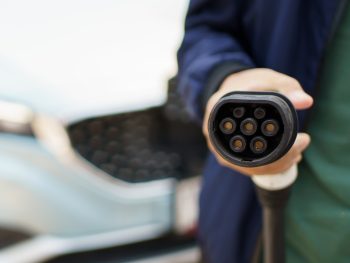ICE ban delay to have little impact on fleet EV strategies
The Government’s delay on the ban of new petrol and diesel cars/vans is likely to have limited impact on real-world fleet strategies as fleets continue to push ahead with electrification.

The AFP said the general consensus was that car fleet strategies would remain largely untouched
The Association of Fleet Professionals (AFP) said the overwhelming reaction from its members had been that last week’s extension to the sales of new ICE cars/vans was a nakedly political move that would “change little” for car fleets.
Chair Paul Hollick said: “When it comes to cars, Benefit-in-Kind taxation hugely favouring EVs and the zero emission vehicle mandate remain in place and there are apparently no plans to change them. This means fleets will continue to electrify their car fleets at a rapid pace and the Government’s decision will change little.
“Within a few years and well before 2035, it may be quite difficult to buy a new non-electric vehicle anyway. The fact is that the UK forms a small part of the global car market and the decision to delay electrification here is not going to noticeably impact on manufacturer plans to end internal combustion engine production.”
However, the AFP said the picture could be different for vans – adding that many operators had already held strong doubts that the 2030 deadline could be met and the Government’s move to 2035 simply acted as an official acknowledgment.
Hollick elaborated: “It has become clear to many of our members over the last year or more that electrifying their light commercial vehicle fleets by the end of the decade was going to be a big ask. Neither the vehicle designs nor the charging infrastructure appear to be ready to meet the needs of all fleets, and there was a growing sense, at least among some, that this would have to be acknowledged sooner or later by the Government.”
But he said that despite this, many AFP members would no doubt keep their plans for 2030 van electrification in place as part of their net zero strategies.
“We have operators who are deeply committed to this target or even sooner at a corporate level and none of them have so far indicated any change plus, of course, the zero emission vehicle mandate applies here, too. However, we expect that some businesses will now attempt to slow van electrification, with plug-in hybrids perhaps acting as a medium-term stepping stone.”
Overall, Hollick stressed that fleets had been left feeling annoyed by the Prime Minister’s rowback on the 2030 date.
“Businesses have put in huge amounts of work on electrification and spent substantial sums. The fact that the deadline can then be moved in what appears to be a fairly arbitrary manner doesn’t endear the Government to fleets.
“Also, it should be acknowledged that many, many of our members take net zero very seriously at a corporate level and believe that we should be electrifying as quickly as possible, despite some of the obstacles that remain. There is a sense that the Government doesn’t necessarily share that priority.”

